Second Leg of Food Safety and Proper Food Handling Training in Tagaytay City
June 2018
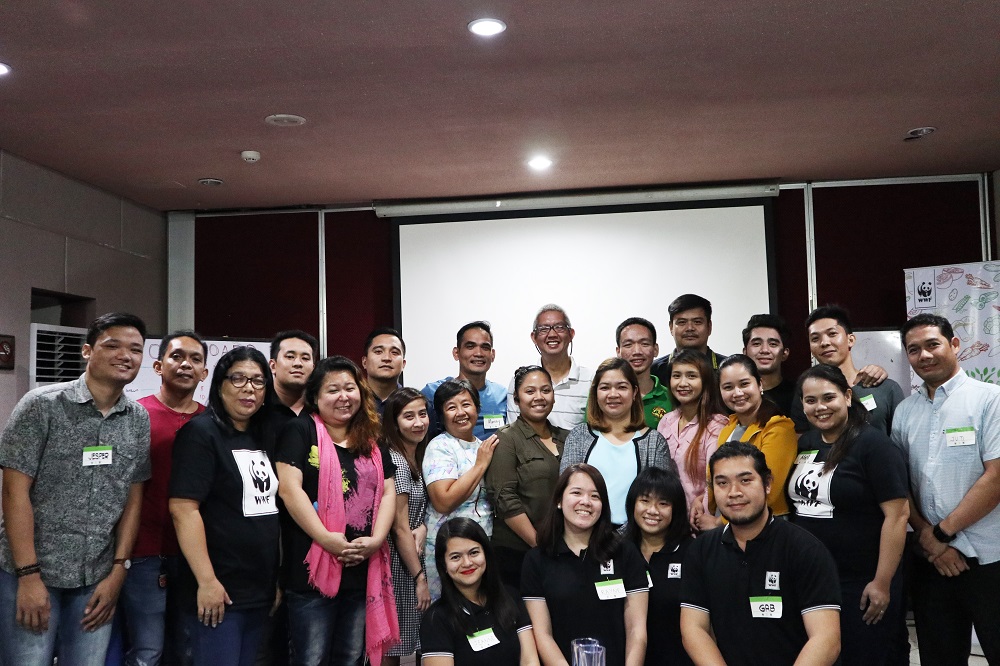
The participants of the Serve Our Planet: Ensuring Safe Food and Proper Food Handling training are representatives of restaurants and other food service establishments, and government employees from one of The Sustainable Diner’s partner cities, Tagaytay City. © Gabriel Villalon / WWF-Philippines
In celebration of World Environment Day 2018, World Wide Fund for Nature (WWF) Philippines’ The Sustainable Diner: A Key Ingredient for Sustainable Tourism project conducted the second leg of their Serve Our Planet: Ensuring Safe Food and Proper Food Handling training at the Tagaytay International Convention Center (TICC). In partnership with the City Government of Tagaytay, through the Tagaytay Tourism Office, the objective of the training is to equip the city’s food service establishment representatives with the skills and knowledge needed in order for them to incorporate sustainability practices in their day-to-day operations. As food service industry practitioners, this training served as an eye opener to alleviate the food waste issue through proper knowledge and understanding of food safety and handling principles.
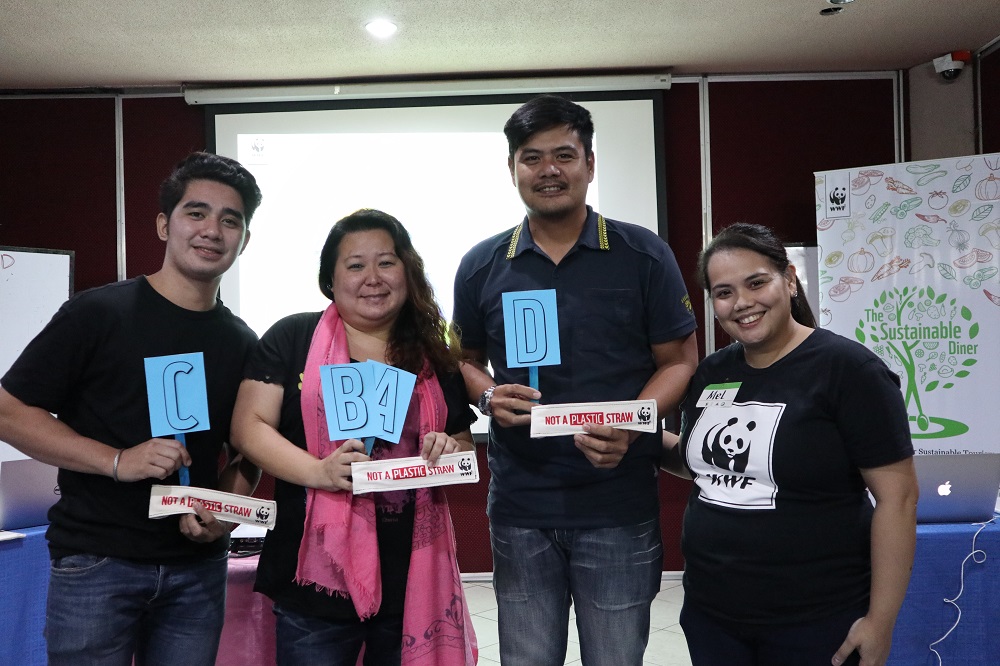
WWF Project Manager for Sustainable Consumption and Production in the Philippines, Melody Melo-Rijk, with members of Team Blue, the second placer for the training’s group quiz competition, pose for a photo-op with their WWF metal straw prizes. © Gabriel Villalon / WWF-Philippines
The training was based on ServSafe, a food and beverage safety training and certification program. ServSafe has integrated the latest FDA Code and extensive food sanitation training research and experience into its manual to provide participants comprehensive training guidelines.
Melody Melo-Rijk, WWF’s Project Manager for Sustainable Consumption and Production in the Philippines, opened the training by welcoming the participants and by giving a short introduction on The Sustainable Diner project, as well as the Serve Our Planet training series and its objectives. Since the Tagaytay training was the second leg of this particular module, she also shared with the participants some of her experiences with the Quezon City training leg. This was followed by a talk on sustainable tourism by Ms. Jelanne Mendoza, Head of Tagaytay City’s Tourism Office, who encouraged everyone in the room to be proud of Tagaytay’s status as a premier tourist destination in CALABARZON and to embrace the challenge of becoming more environmentally-conscious which will ensure the city’s long-term tourism potential.
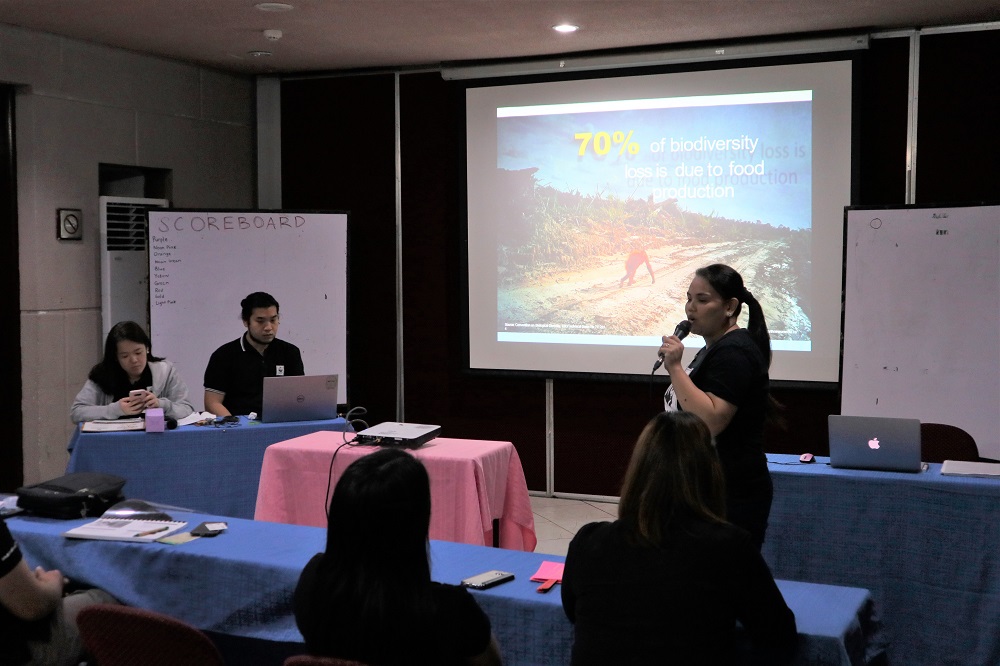
Melody Melo-Rijk presenting the environmental challenges we are globally facing when it comes to food production and consumption. © Jesper Nepomuceno / WWF-Philippines
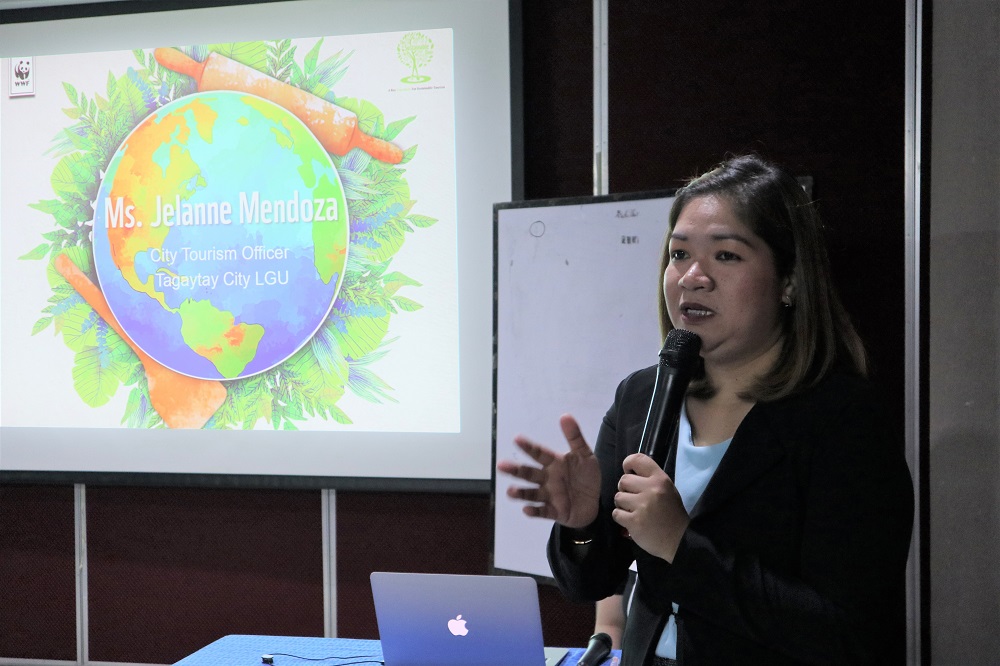
Jelanne Mendoza, Head of Tagaytay’s Tourism Office, shares the projects of her office and how they are supporting the implementation of sustainable tourism practices in the city. © Jesper Nepomuceno / WWF-Philippines
Just like the Quezon City leg, Melo-Rijk discussed the different ServSafe modules including Providing Safe Food, Forms of Contamination, The Safe Food Handler, The Flow of Food, and an Introduction to Food Safety Management. Individual quizzes and interactive group quizzes were given in between sessions to ensure that the participants were able to grasp the concepts presented in each topic. The training ended with an awarding of prizes for the top three groups with the most points, as well as the presentation of the Serve Our Planet badges, which each restaurant will earn for every training where they send a representative to attend.
Through the whole-day training, the participants were equipped with new knowledge on proper food handling, which they can use for their day-to-day operations. This also serves as preparation should they wish to take their own ServSafe certification exams. Here’s to more integration of sustainable dining principles in our local dining industry!
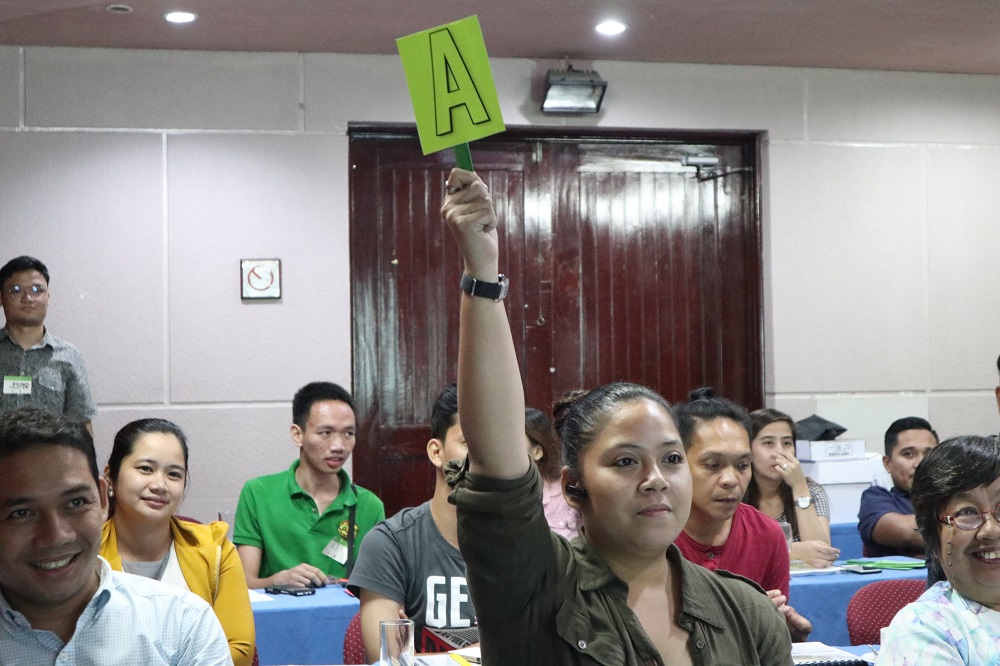
One of the training participants from Taal Vista Hotel confidently raising her group’s answer card for the quiz question. © Gabriel Villalon / WWF-Philippines
The Sustainable Diner project, under WWF-Philippines’ Sustainable Consumption and Production, is part of the International Climate Initiative (IKI). The Federal Ministry for the Environment, Nature Conservation, Building and Nuclear Safety (BMUB) supports this initiative on the basis of a decision adopted by the German Bundestag.
